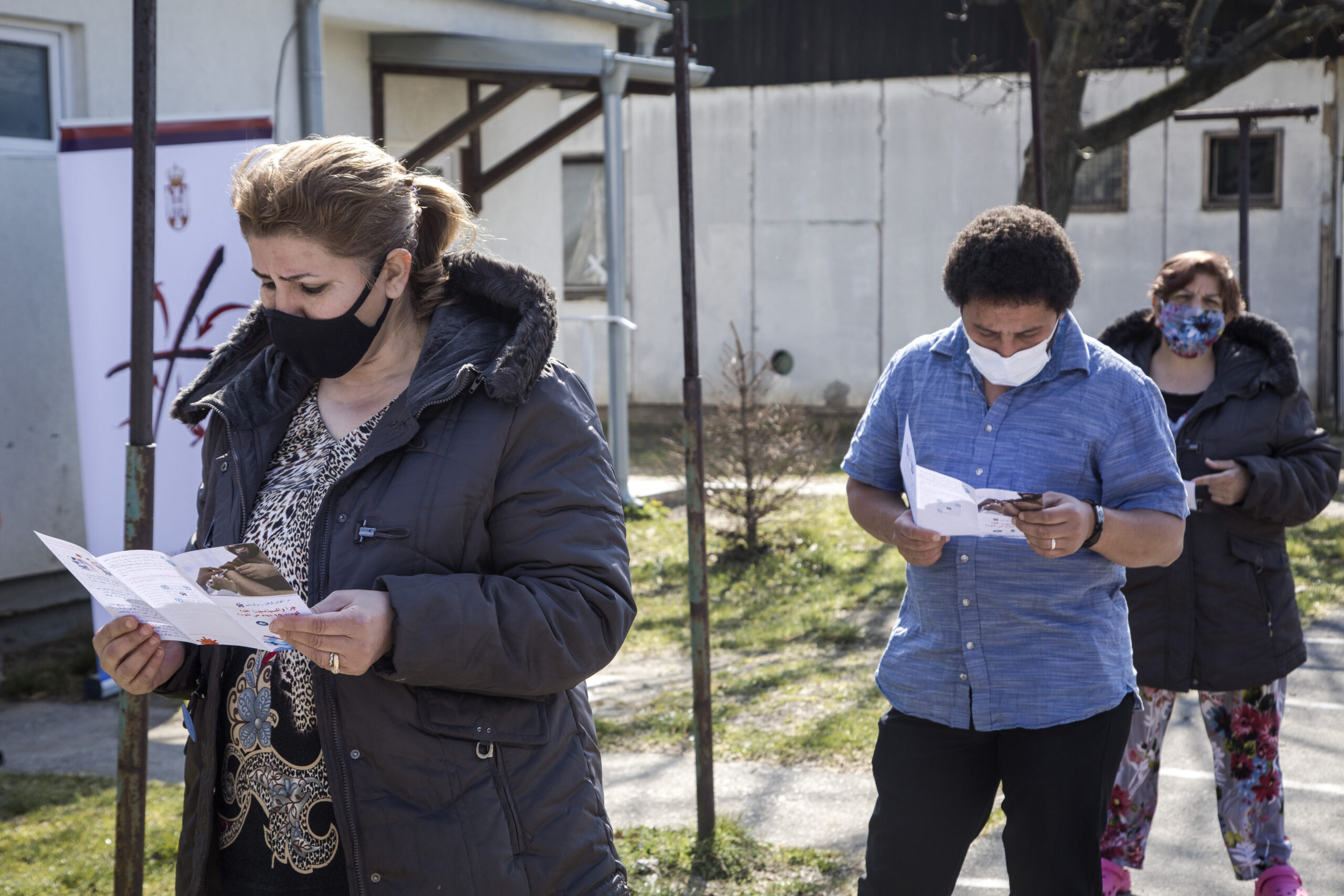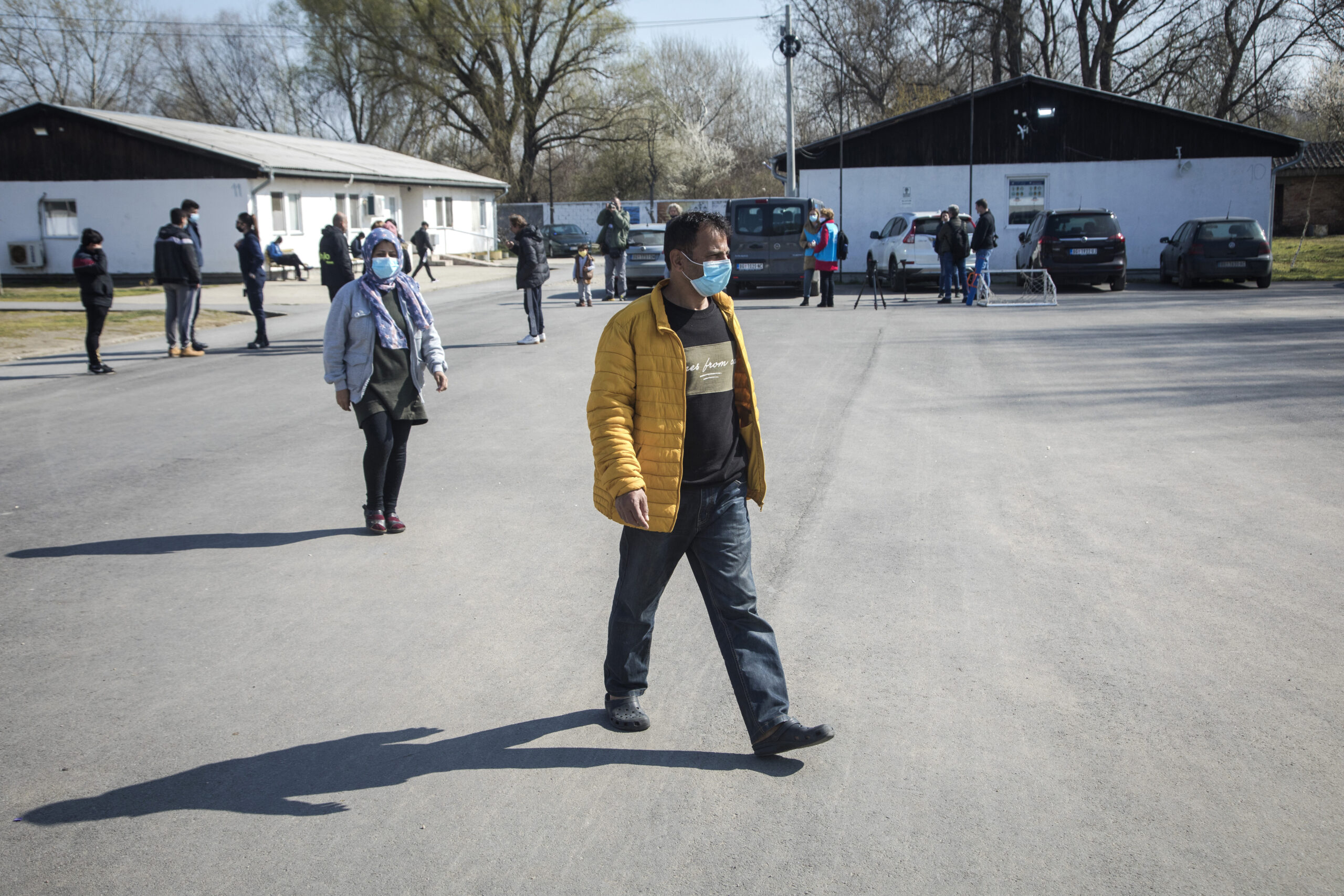
While waiting for vaccination in front of medical facility at CA Krnjaca in Belgrade, center residents are getting informed about vaccination procedure by reading vaccination leaflets. Belgrade, Serbia on March 26, 2021 Vaccination of refugees, asylm-seekers and migrants in the 19 centres in Serbia started mid this week. The residents in the first asylum centre, who registred for vaccination get their first jab today. Vaccination in other asylum and reception centres will continue until all who registered are immunized.
Serbia has commenced COVID-19 vaccinations for refugees and asylum seekers. On Friday, 53 people at an asylum centre near the capital, Belgrade, received their first jab.
“We are grateful that the Serbian state is treating us equally as its citizens and that it made it possible for us to get vaccinated,” said Mohammad, a pastry chef and asylum-seeker from Afghanistan who is set on making a new life for himself in Serbia.
“We hope that everyone will get the vaccine because we can overcome the virus only when we are united and vaccinated,” he said, after receiving the dose of the vaccine at the Krnjača asylum centre.
UNHCR, the UN Refugee Agency, advocated with Serbian authorities for the inclusion of refugees, asylum-seekers and migrants in the national immunization plan adopted in January. It has also worked with WHO, other UN agencies and NGOs for the inclusion of refugees in COVID-preparedness and response plans.
“UNHCR deeply appreciates the inclusion of refugees in the vaccination plan of the Republic of Serbia. This shows a commitment to protect and integrate refugees and asylum-seekers in Serbian society,” UNHCR’s representative in Serbia Francesca Bonelli said.
While more than 30 refugees and asylum-seekers living in private accommodation in Serbia were vaccinated earlier in March, Friday’s vaccinations were the first for those hosted in reception centres. As of today, more than 300 refugees and asylum-seekers in government shelters have received the first dose of the vaccine.
The country hosts around 4,880 refugees and asylum-seekers.
“Responsible behaviour to oneself and others is of paramount importance in the COVID-19 pandemic. Vaccination is the way to demonstrate such responsibility,” the Commissariat for Refugees and Migration of the Republic of Serbia stated.
UNHCR advocates globally for the inclusion of refugees and asylum-seekers in national vaccination plans, as well as people who are displaced within their own countries or stateless.

The first phase of Serbia’s COVID-19 vaccination plan covered frontline health workers, staff and residents of homes for the elderly and social protection institutions, people over 75 and patients with chronic illnesses. Refugees, asylum-seekers and migrants accommodated in asylum and reception and transit centres are included in the third phase.
“We, as refugees, have been concerned about what would happen to us and whether we will also get vaccinated,” said Farnus, an asylum-seeker from Iran who is in Serbia with her mother and two children. “Today we also got the first jab, and we are thankful to the authorities and all the organizations for having made it possible.”
Share on Facebook Share on Twitter